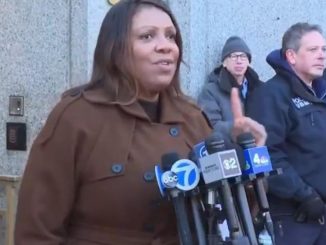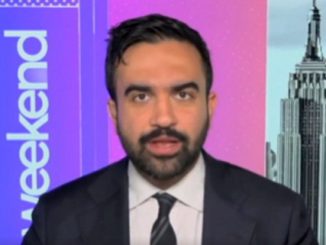
Published July 19, 2025
Zohran Mamdani, the new Democratic nominee for mayor of New York City and a self-described socialist, has found himself under intense scrutiny after remarks he made in a 2020 interview resurfaced this week. In the clip, Mamdani posed a provocative question: “What purpose do [jails and prisons] serve, besides making people feel good?” He challenged whether incarceration truly rehabilitates—or instead inflicts more harm.
🔥 The 2020 Clip Goes Viral
Shared widely on conservative social media by outlets like “End Wokeness,” the video quickly drew fire from law enforcement and political opponents. Mamdani, then running for the State Assembly, argued:
“How many people come out the prison system better than they went in?”
He went on to call for deeper reflection on whether prisons prevent harm or perpetuate new forms of systemic damage.
Backlash From Enforcement and Political Rivals
Law enforcement leaders responded with alarm. Police officers described the remarks as “scary” and “out of touch,” warning they could endanger communities if decarceration measures were implemented hastily. The Correction Officers’ Benevolent Association warned that reducing jail populations—or even closing facilities like Rikers Island—without alternatives could unleash dangerous individuals and threaten public safety.
GOP mayoral contender Curtis Sliwa criticized Mamdani’s stance as “absolutely preposterous,” while residents interviewed by The Post expressed that while prisons can be improved, they remain essential for safety.
Contextualizing Mamdani’s Criminal Justice Vision
Mamdani has long advocated for sweeping reforms:
-
Closing Rikers Island, a move with eventual legal support and funding.
-
Cutting pretrial detention and redirecting resources to restorative justice, substance-abuse treatment, and mental health programs.
These ideas align with his broader progressive agenda, which includes renewing affordable housing, single-payer healthcare, and confronting systemic racism.
Why the Remarks Matter Now
With the resurfaced comments emerging just weeks before the November general election, public safety takes center stage. Critics argue his rhetoric suggests ideology over pragmatism—particularly concerning violence and crime in marginalized areas. Supporters, however, see this as a necessary reckoning of structural injustices.
What This Means for the Race
-
Polarization: The backlash highlights entitlement to crime vs. meaningful reform.
-
Framing the Debate: Mamdani’s opponents are defining him as “soft on crime” to sway undecided suburban and moderate voters.
-
Opportunity for Clarity: The controversy also gives Mamdani a chance to explain specifics—such as what alternatives he proposes and how public safety would be maintained.
 Mamdani made the remarks in August 2020.
Mamdani made the remarks in August 2020.
 Mamdani has been critical of the awful conditions at Rikers Island.AP
Mamdani has been critical of the awful conditions at Rikers Island.AP
 Resulting Effects:
Resulting Effects:
The resulting effects of Zohran Mamdani’s resurfaced prison remarks—both politically and socially—can be summarized across five key areas:
1. Political Fallout: Damage to Broad Electability
-
Mainstream Voter Alienation: Mamdani’s radical stance on prisons may alienate moderates, independents, and center-left Democrats—especially in areas affected by rising crime.
-
Opposition Weaponization: Republicans and centrist Democrats are using the remarks to brand Mamdani as “soft on crime” or “dangerously idealistic.” This could mobilize swing voters against him in the general election.
-
Increased Scrutiny: Expect more of Mamdani’s past statements, writings, and affiliations to be mined for political ammunition, potentially distracting from his policy agenda.
2. Media Amplification and Narrative Control
-
Conservative Media Surge: Outlets like Fox News, NY Post, and Gateway Hispanic amplified the video clip, creating a viral moment that painted Mamdani as radical and reckless.
-
Reframing the Debate: The media firestorm has shifted the focus of his campaign from policy proposals (housing, healthcare, education) to one issue: crime.
-
Pressure to Clarify: Mamdani is now expected to give clearer, more detailed positions on public safety, carceral alternatives, and accountability.
3. Law Enforcement & Union Pushback
-
Public Condemnation: Police and correctional officer unions publicly condemned Mamdani, suggesting his policies would embolden criminals and threaten officers’ safety.
-
Voter Influence: These unions hold sway in key voting blocs—especially in outer-borough communities and suburbs—potentially costing Mamdani critical votes.
-
Institutional Resistance: If elected, Mamdani could face bureaucratic and institutional opposition in implementing reforms, especially from police unions and city agencies.
4. Deepening Ideological Divide
-
Progressives Rally: Some progressive voters and organizations may double down in support of Mamdani, seeing the backlash as a sign he’s pushing needed reform.
-
Moderate Backlash: However, working-class and immigrant communities—who often support both safety and reform—may feel conflicted. They might agree with prison reform in theory but fear the consequences of swift decarceration.
-
Polarized Discourse: This episode reinforces the broader national divide over how to balance criminal justice reform with public safety.
5. Campaign Strategy Shift
-
Damage Control Mode: Mamdani’s campaign may pivot to clarify his stance on crime, highlight community safety programs, and distance itself from any “abolish prisons” interpretation.
-
Focus on Data & Results: Expect a renewed emphasis on evidence-based programs (e.g., mental health interventions, job training, pretrial services) as humane and cost-effective alternatives.
-
Rebuilding Trust: Campaigning in neighborhoods hardest hit by both crime and over-policing will be essential. Mamdani must now prove that his vision is not only moral—but practical.
 Bottom Line:
Bottom Line:
Zohran Mamdani’s resurfaced remarks questioning the purpose of prisons have thrust him into a political firestorm at a critical moment in his mayoral campaign. What began as a philosophical critique of the prison system has become a defining controversy—one that highlights the deep tensions between progressive ideals and public safety concerns in urban politics.
While his comments resonate with activists pushing for a reimagined justice system, they’ve also sparked fear and backlash from law enforcement, conservative media, and moderate voters. The episode underscores the challenge reform-minded candidates face: balancing visionary change with the practical realities and anxieties of the electorate.
Mamdani now stands at a crossroads. If he can effectively clarify his position, rebuild trust, and articulate a detailed, responsible approach to justice reform, he may yet emerge as a bold alternative to status quo politics. If not, this moment may become the cautionary tale that defines—and potentially derails—his campaign.
In a city shaped by both inequality and crime, the question voters must decide is this: Is Mamdani’s vision too risky—or exactly what’s needed?





Be the first to comment